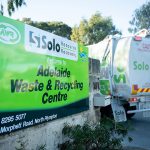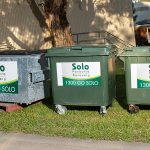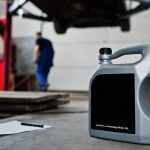The Remarkable Journey of Materials from Our Recycling Drop-Off Centre
Recycling plays a critical role in protecting the environment and conserving resources. Yet, many Australians are unaware of what happens to their recyclables after they leave a recycling drop-off centre. Understanding this process helps foster a deeper appreciation for recycling and the positive impact that it has on our planet. This article takes you behind the scenes to uncover the remarkable journey that recyclables make, from the moment they’re dropped off to their transformation into new products.
The Recycling Drop-Off Centre: The First Step in the Journey
The recycling journey begins at a recycling drop-off centre like ours, where residents and businesses can bring a wide range of materials. These include paper, cardboard, glass, plastics, metals, and electronic waste. Proper sorting at the point of drop-off helps ensure that recyclables are processed efficiently and effectively.
At the Adelaide Waste and Recycling Centre, our staff guide visitors on how to correctly deposit items, minimising contamination and ensuring materials are suitable for the next stage. What happens to recyclables from this point on depends on how well they have initially been sorted. This is why public cooperation at the drop-off stage is important.
Sorting: Separating Materials for Recycling
Once the recycled materials are collected from the drop-off centre, they are transported to a Material Recovery Facility (MRF). Here, sorting technologies and human oversight come together to separate recyclables by type. The sorting process includes several steps: screening to separate items by size, classification to separate light from heavy materials, and separation to remove certain types of metals.
This phase is important because different materials require different recycling methods. If recyclables are not properly sorted, they may be sent to landfill or incineration, which is a less-than-ideal outcome that can be avoided with preparation. Also, efficient sorting ensures that the maximum amount of material is recovered and prepared for processing.
Processing: Transforming Waste into Usable Materials
After sorting, the next step in the journey is processing. Each type of recyclable material goes through a unique transformation process. Paper and cardboard are broken down into pulp and then processed into new paper-based products. Plastics are shredded and melted into pellets that can be reused in manufacturing. Metals are melted down and formed into new products like cans or car parts. Glass is crushed into cullet and used to make new glass containers or construction materials.
What happens to recyclables during processing highlights the real value of recycling: turning waste into raw materials for new goods. This not only reduces the need for virgin resources but also uses significantly less energy compared to producing materials from scratch. Processing is the key link between discarded waste and the creation of new, useful items.
Manufacturing: Creating New Products from Recycled Materials
Once recyclables are processed into usable raw materials, they move on to manufacturers. These businesses use the recycled materials to produce a wide variety of goods. Recycled paper can become newspapers or packaging, recycled plastic can be turned into clothing or park benches, and recycled metals find new life in everything from appliances to infrastructure.
This part of the journey shows what happens to recyclables once they’ve been fully re-integrated into the economy. Many everyday products feature components made from recycled materials, often without consumers even realising it. This ongoing cycle of use, recovery, and reuse is central to a sustainable economy.
The Environmental Benefits: Why the Journey Matters
Understanding what happens to recyclables after they leave the recycling drop-off centre reveals more than just logistics – it shows the significant environmental impact of recycling. Recycling helps preserve natural resources, lowers greenhouse gas emissions, and reduces the reliance on landfill space. Every tonne of recycled paper saves 13 trees, and recycling aluminium saves up to 95% of the energy required to make it from raw materials.
The journey from recycling drop-off centre to new product illustrates the power of individual actions. When residents take the time to sort and drop off their recyclables correctly, they contribute to a much larger system that has real-world environmental benefits. This closed-loop system reduces waste and supports jobs and economic growth within the recycling and manufacturing industries.
The Importance of Community Participation
What happens to recyclables depends largely on community behaviour. By utilising drop-off centres, individuals play a vital role in the success of the recycling process. Education, awareness, and consistent recycling habits lead to better outcomes at every stage, from sorting to manufacturing.
At the Adelaide Waste and Recycling Centre, we believe that an informed community is a more sustainable one. That’s why we offer resources and support to help residents and businesses recycle better. Community participation transforms recycling from a routine task into a powerful tool for environmental protection.
The Remarkable Journey of Recycled Materials
The journey of recyclables is more complex than it may appear. From the moment materials are dropped off, they go through a rigorous process of sorting, processing, and transformation. Understanding what happens to recyclables at each stage helps build a stronger commitment to sustainable practices and highlights the importance of every individual’s role in the recycling ecosystem.
Bring Your Recyclables to Our Recycling Drop-Off Centre
Join us at the Adelaide Waste and Recycling Centre in making a difference. Bring your recyclables to our recycling drop-off centre and become part of the solution. Together, we can ensure that waste is transformed into valuable resources and that our environment is protected for generations to come. Visit our web page for more information on what materials we accept.
Adelaide Waste and Recycling Centre
Our friendly operators are available at the AWRC if you need to clarify any further information.


